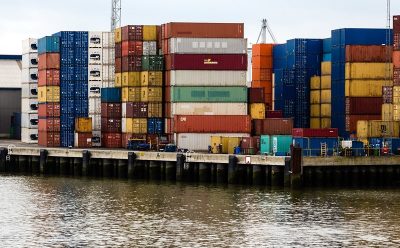America Imported Over $6 Billion in Goods From Russia Since Ukraine Invasion

All Global Research articles can be read in 51 languages by activating the “Translate Website” drop down menu on the top banner of our home page (Desktop version).
To receive Global Research’s Daily Newsletter (selected articles), click here.
Follow us on Instagram and Twitter and subscribe to our Telegram Channel. Feel free to repost and share widely Global Research articles.
***
In response to Russia’s attack on Ukraine, US President Joe Biden vowed to isolate and “cripple” the Russian economy. However, Moscow has been able to maintain its economic strength, in part by exporting over $1 billion per month in wood, metals, food and other goods to the US.
More than 3,600 ships from Russia have arrived at US ports since February 24, according to statistics cited by the Associated Press. While that is nearly half of the shipments over the same period compared to last year, it still amounts to over $6 billion in imports.
The number of Russian products entering US ports suggests Biden is falling short of his pledge to isolate Moscow’s economy. Due to so-called “wind down” periods that allow companies to complete previous deals, some of the goods continue to enter the country long after the White House announced sanctions on those products, including oil and gas. Paradoxically, other Russian imports, such as fertilizer, came at the request of the Biden administration, which has urged American companies to make up for shortages.
And while the White House has seized several luxury yachts owned by rich Russians with loose ties to Russian President Vladimir Putin, the AP found that American and European firms are importing millions of dollars in metal from a Russian company that makes parts for Moscow’s fighter jets, highlighting another odd discrepancy in Biden’s sanctions campaign.
Despite diplomatic pressure from Washington, other American allies are increasing their economic ties with Russia. Turkey – a NATO member – has doubled its imports of Russian oil this year.
During Biden’s presidency, he has taken several steps to strengthen ties with New Delhi, with American troops currently engaged in war games with India on the Chinese border. But like Ankara, the country has similarly significantly increased energy imports from Moscow. The Indian rupee has also become a major currency for the diamond trade, allowing buyers to bypass US sanctions.
Though the Western economic war was meant to negate Moscow’s military might and bring it to the negotiation table, it has so far seen little success. With Russian energy exports topping pre-war levels in recent months and the ruble rallying against the dollar, Russia’s economy appears to have fared far better than much of Europe since fighting erupted last winter.
*
Note to readers: Please click the share buttons above or below. Follow us on Instagram and Twitter and subscribe to our Telegram Channel. Feel free to repost and share widely Global Research articles.
Kyle Anzalone is the opinion editor of Antiwar.com and news editor of the Libertarian Institute.
Will Porter is the assistant news editor of the Libertarian Insitute and a staff writer at RT. Kyle Anzalone and Will Porter host Conflicts of Interest along with Connor Freeman.
Featured image is from The Libertarian Institute

